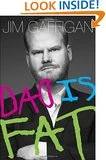I grew up in a Christian fundamentalist cult. You can read more about that in my book, Girl at The End of the World. Suffice to say, I understand the fundamentalist/Quiverfull system. I know the theology. I know what happens in these home-churched, no-kissing-before-wedding-day families. I know because my childhood cult was very, very similar.
But today, I'm not interested in rehashing my own past. Today, I want to address WHY these things keep happening.
I am far more interested in the systems and structures that enable and perpetuate abuse because until those systems change, we'll just keep putting out fires.
The greatest mistake we can make right now is believing that this latest exposure of sexual assault is an isolated incident. I am here to tell you that the Christian church—as a whole—has a major, MAJOR problem with the physical and sexual abuse of children. It's time we examined not only WHAT is happening but WHY this is happening.
To get a clearer understanding of the problem, let's look at how prominent Christians are responding to the information that Josh Duggar sexually assaulted multiple young girls.
Within hours of the Duggar statement, prominent Christian leaders began trumpeting a "Josh Duggar Redemption Story." I mean, we barely had time to process the information before we were bombarded with Christians demanding we all Stop Judging! Forgive! Haven't You Ever Sinned? Look! He repented!
Mike Huckabee took to Facebook to express his righteous indignation over the "insensitive bloodthirst" of those who exposed "long ago sins." Apparently, the real horror here was NOT the sexual assault itself but the fact that it had been made public.
Popular Christian blogger, Matt Walsh, published a piece on The Blaze opining that the problem was not sexual assault but....hypocritical, opportunist liberals. He even went so far as to say if his son confessed to sexual assault, he wasn't sure whether he'd report him to the authorities. Um. WHAT?
The Christian Post published an article called "Finding Redemption in The Josh Duggar Story" wherein author Michael Brown suggested that "Josh can be an ambassador on behalf of the abused" and that his "future can be bright in the Lord." Um. Pretty much the very LAST thing survivors of sexual abuse need is for their perpetrator to advocate on their behalf.
Billy Graham's grandson and founder of the website "Liberate," published an article by two pastors who claimed that ALL of us are the Duggars because "all of us harbor our demons." So, essentially, sexual assault is just like any other sin. Come on, guys! FORGIVE! EXTEND GRACE.
These are just a few examples. I'm sure there are dozens and dozens more.
Here's what troubles me: these Christians demonstrate a profound (and dangerous!) confusion about the differences between forgiveness vs. reconciliation and forgiveness vs. accepting the reality of consequences. And THAT confusion is symptomatic of an entire system that enables abuse.
SYMPTOM #1: EQUATING FORGIVENESS WITH RECONCILIATION
The authors of the bestselling book "BOUNDARIES" explain the difference between forgiveness and reconciliation: "Do not think that because you have forgiven means you have to reconcile. You can offer reconciliation, but it must be contingent upon the other person owning [their] behavior and bringing forth trustworthy fruits…Forgiveness is very hard. It means letting go of something that someone ‘owes’ you…Warning: forgiveness and opening up to more abuse are not the same thing. Forgiveness has to do with the past. Reconciliation and boundaries have to do with the future." (p. 256,257,258, 268, 269).
Especially in spiritually abusive environments, people are told that forgiveness is the same thing as reconciliation. We are told we must accept the abuser’s apology and allow him/her back into our lives. Victims are often encouraged to smile and welcome the abuser back because once an abuser has "repented," it's a sin to "hold bitterness" in our hearts. But this isn’t true. It’s actually harmful for us to reconcile with someone who hasn’t demonstrated changed behavior because it’s a violation of our God-given rights and boundaries.
Forgiveness is something I can do on my own; i.e., release someone from the debt they owe me, "charge off" their account, so to speak. But forgiveness DOES NOT MEAN I am required to reconcile with that person. And furthermore, it does NOT mean that I am required to release them from the legal consequences of their actions.
SYMPTOM #2: DEALING WITH CRIMINAL BEHAVIOR "IN HOUSE" AND NOT REPORTING TO CIVIL AUTHORITIES
As demonstrated by Huckabee and Walsh's posts, the greater sin is not the crime itself but the exposure of the crime. This is a classic tactic of spiritually abusive systems. I can't tell you HOW MANY times I've heard stories of abuse that were simply brought to the attention of the "church authority" but never reported to civil authorities. The theological justification for this is that since sin is essentially a "spiritual matter," it needs to be dealt with in a spiritual context; i.e., the church. But this idea is wrong and it enables abuse.
Christ's forgiveness does NOT mean immunity from earthly consequences. As Christians, we believe Jesus died to save us from the eternal consequences of our sin. But let's be clear: we are still responsible for our earthly actions and whatever consequences those may incur. Indeed, a true Christian ethic respects and acknowledges the validity of civil authority. We do not get to circumnavigate the laws of our country just because we believe Jesus forgives our sins.
SYMPTOM #3: WE ARE ALL VILE, EVIL HUMAN BEINGS
Fundamentalist Christians (and many other Protestants, too) ascribe to the we-are-inherently-wicked theology. This is why pastors (like the ones above) can assert that we are ALL THE DUGGARS because, hey! we're all evil! Essentially, every sin carries the same weight. Thinking hateful thoughts is the same as murdering someone. Gluttony is just as bad as sexually abusing a child.
But here's the problem: when EVERYTHING and EVERYONE is equally evil, then NOTHING is actually evil.
In other words, the unintended consequence of we-are-all-evil is that it literally makes a mean thought as bad as actual murder. There are no gradations of sin in fundamentalism. And therefore, since we wouldn't take a glutton to court for overeating, then we shouldn't prosecute a sexual molester for abusing children because it's ALL THE SAME.
Can you see how dangerous this theology is? Can you see how this is a system that perpetuates abuse?
SYMPTOM #4: FOCUSING ON THE ABUSER'S "REDEMPTION STORY"
This is the most insidious symptom of abusive systems. And it was neatly embodied in the writing of Michael Brown (above) where he claims that Josh Duggar can still have a bright future and become an ambassador for the abused. YEAH. Let's talk about that.
First of all, focusing on the abuser's "redemption story" piles abuse on abuse because it inherently de-centers the victims story and the victim's needs. What sex abuse victims want above all else is for their abusers to be held accountable for their crimes and prevented from ever hurting anyone else. Sex abuse victims DO NOT want perpetrators advocating on their behalf (talk about re-traumatizing! how is this not obvious???). Sex abuse victims ARE NOT REQUIRED to rally around the abuser's "redemption story." Sexual assault is not just a "teenage mistake" that everyone will laugh about later on.
Putting on a pair of mismatched socks? That's a mistake. Forgetting to change the oil in your car? That's a mistake. Sexually assaulting girls while they are sleeping is a CHOICE. And it's a CRIME.
Over and over again I've witnessed Christians dismissing, minimizing and denying the severity of sexual assault. Even among my own real-life acquaintances I've heard ridiculous things like: "Hey, it's a big family, that stuff is bound to happen." Or, "Didn't we ALL do stuff like that when we were kids?"
We break the cycle by focusing on accountability for the abuser and providing unequivocal support and advocacy for the victim.
On a personal note, the past few days have been very triggering and difficult for me. It's absolutely crushing to see how many Christians do not take abuse seriously. I haven't felt this discouraged about the state of Christianity since I left my childhood cult. I have spent years (YEARS!) writing about this stuff—including a painfully personal book (the writing of which exacted a steep, emotional toll on my life) and honestly, it's super depressing to see how LITTLE (nothing?) has changed. Furthermore, it's frustrating and sickening to see major media outlets pounce on the Duggar situation with ratings-starved glee. As Micah Murray noted, these media conglomerates have NO IDEA what it's like for sexual, physical and spiritual abuse to be your normal: "What the gawkers and headline-makers can’t comprehend is that for every scandal splashed across their glossy tabloids, there are a thousand broken lives that will never make the news....there will never be headlines for broken marriages and broken hearts, for eating disorders and suicidal depression. For innocent faith destroyed beyond repair. You won’t read in the news about years and years of therapy, about brainwashing and codependency and deprogramming."
Like Micah, I am SO SICK of writing about this shit. My archives are full of 8 years of this writing. I am exhausted. And I am DONE. And I am SO ANGRY that big name Christians have NOT stood up to unequivocally denounce this evil.
On the other hand, I am thankful that this stuff is finally hitting a bigger platform. I am thankful that more people see what's going on.
I am thankful for my little band of encouragers who have read my blog for all these years. I am thankful that yes, maybe things are changing a tiny bit. I am thankful for other writers who have spoken out for years, as well.
This past week I've been called all kinds of names by Christians who do NOT want to look at what is going on. You know what? I laughed. Yeah, I did. I laughed because if defending children means I'm "bitter," then so be it. If speaking up against the systems that enable abuse means I "deny the Gospel," then I'll wear that label proudly.
I'm not afraid of these systems of religious power. I know how weak they actually are—I've seen them fall.
And now I'm going to go drink a second cup of coffee and eat a donut. Carry on, beloveds. We are loved, lovable and loving and we WILL NOT STOP until all the children are free and happy and safe.
Love, EE (bitter, Gospel-denying activist)




















